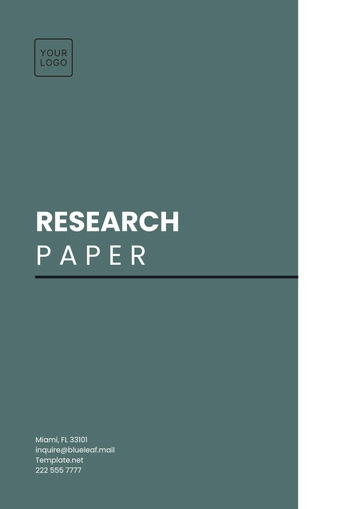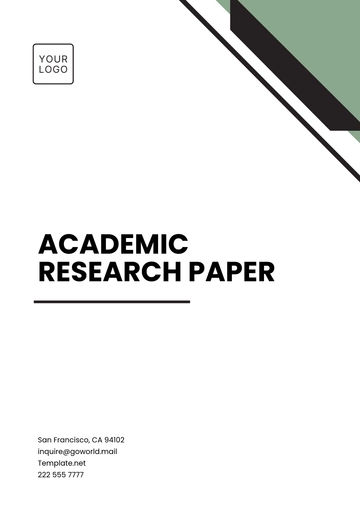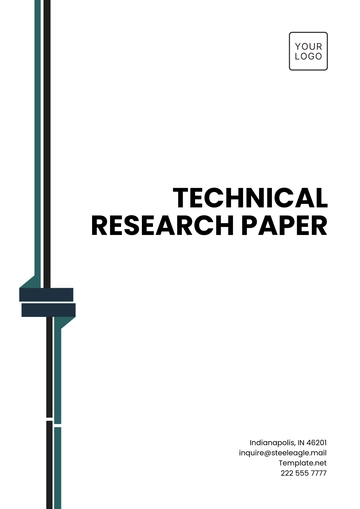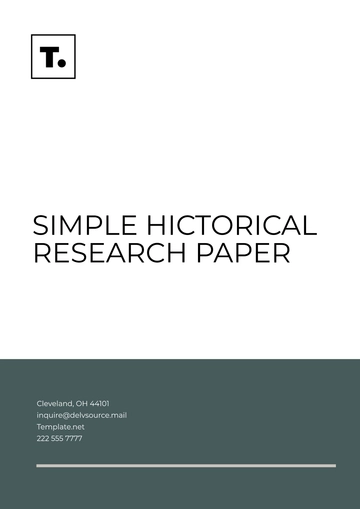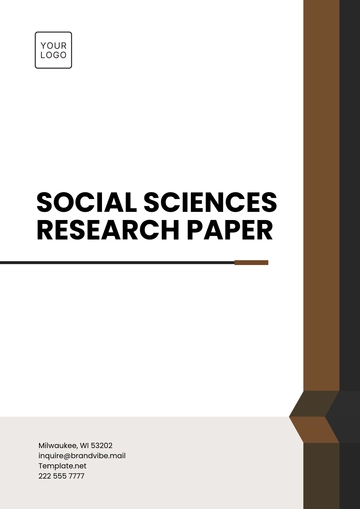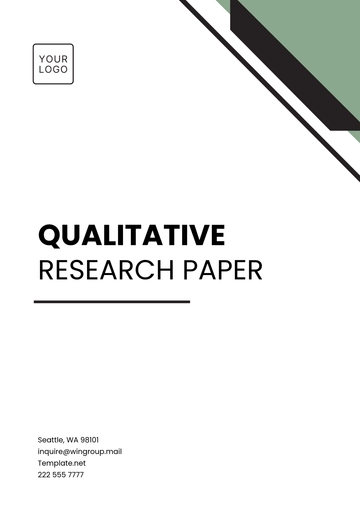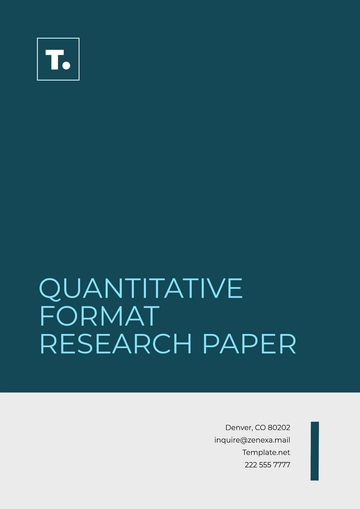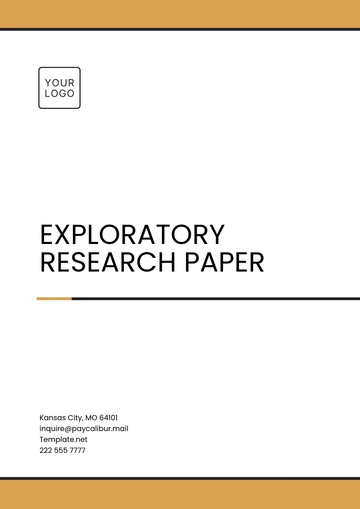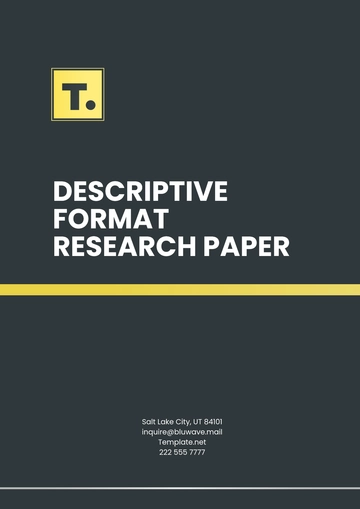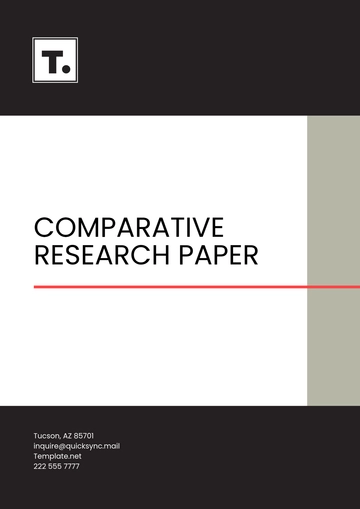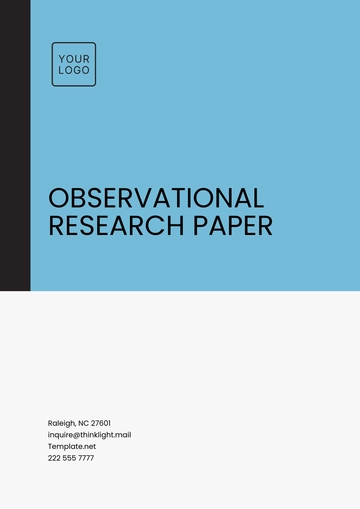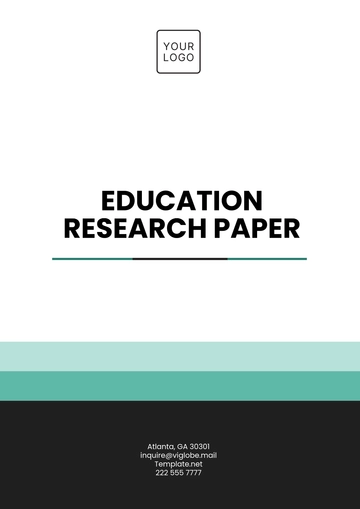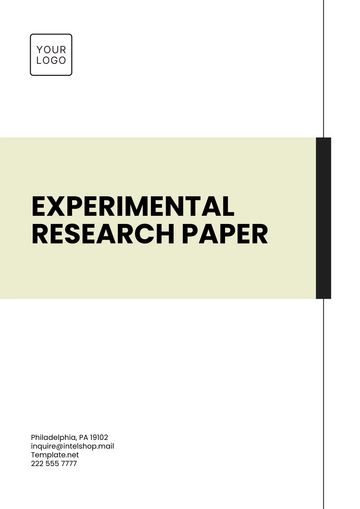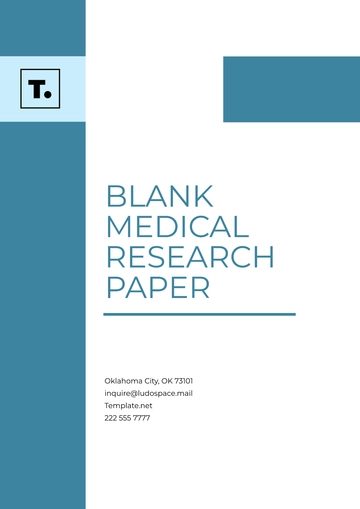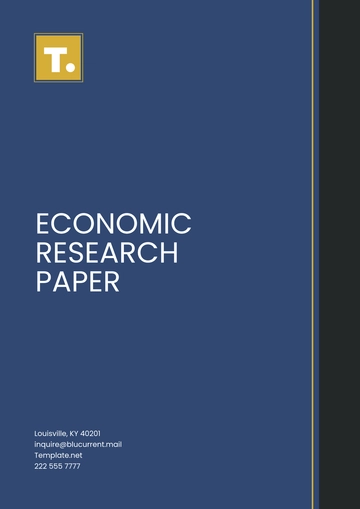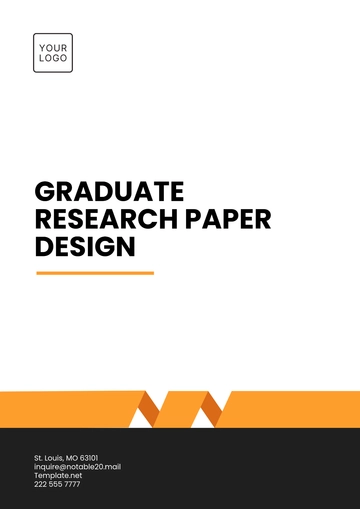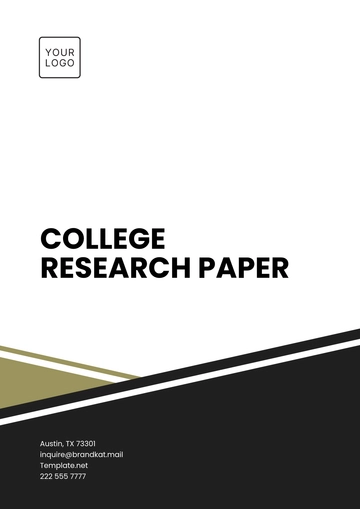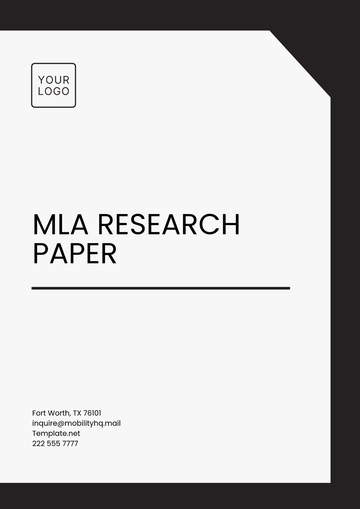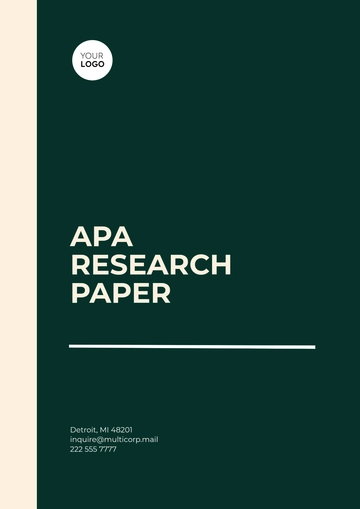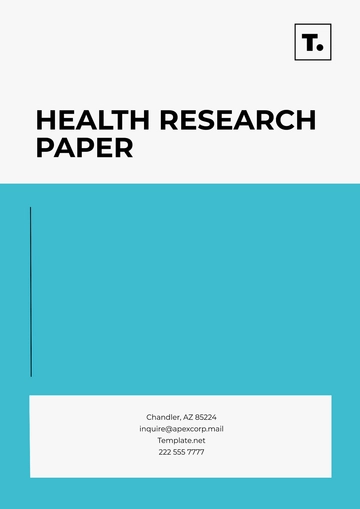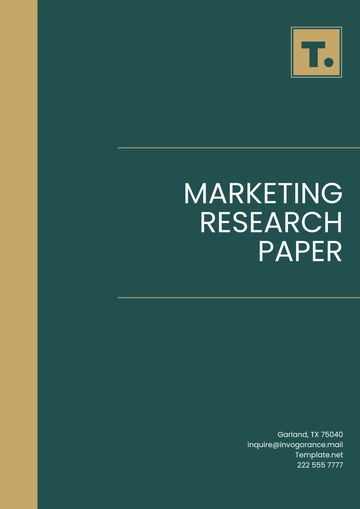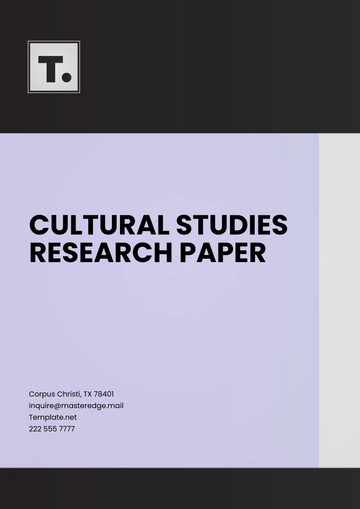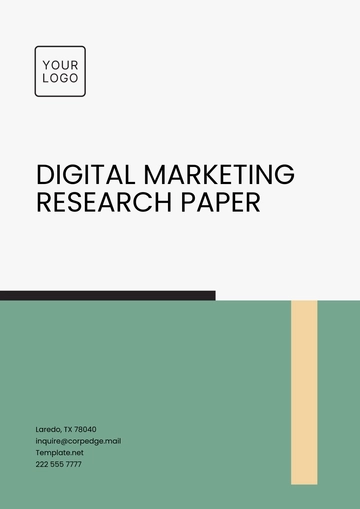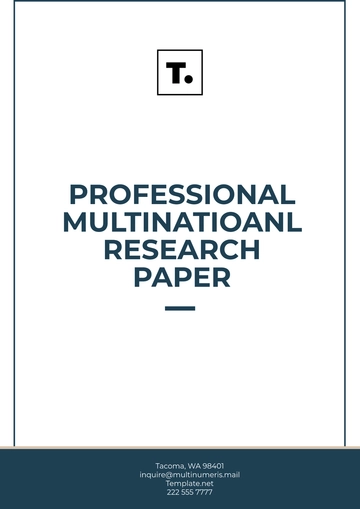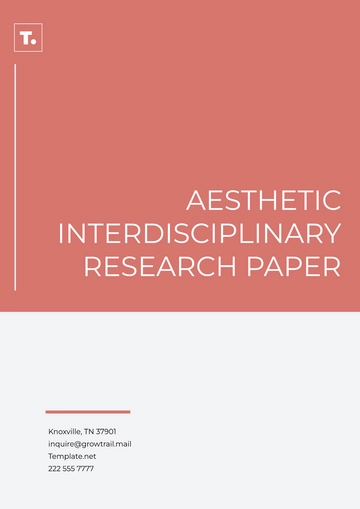Free Medical Research Problem
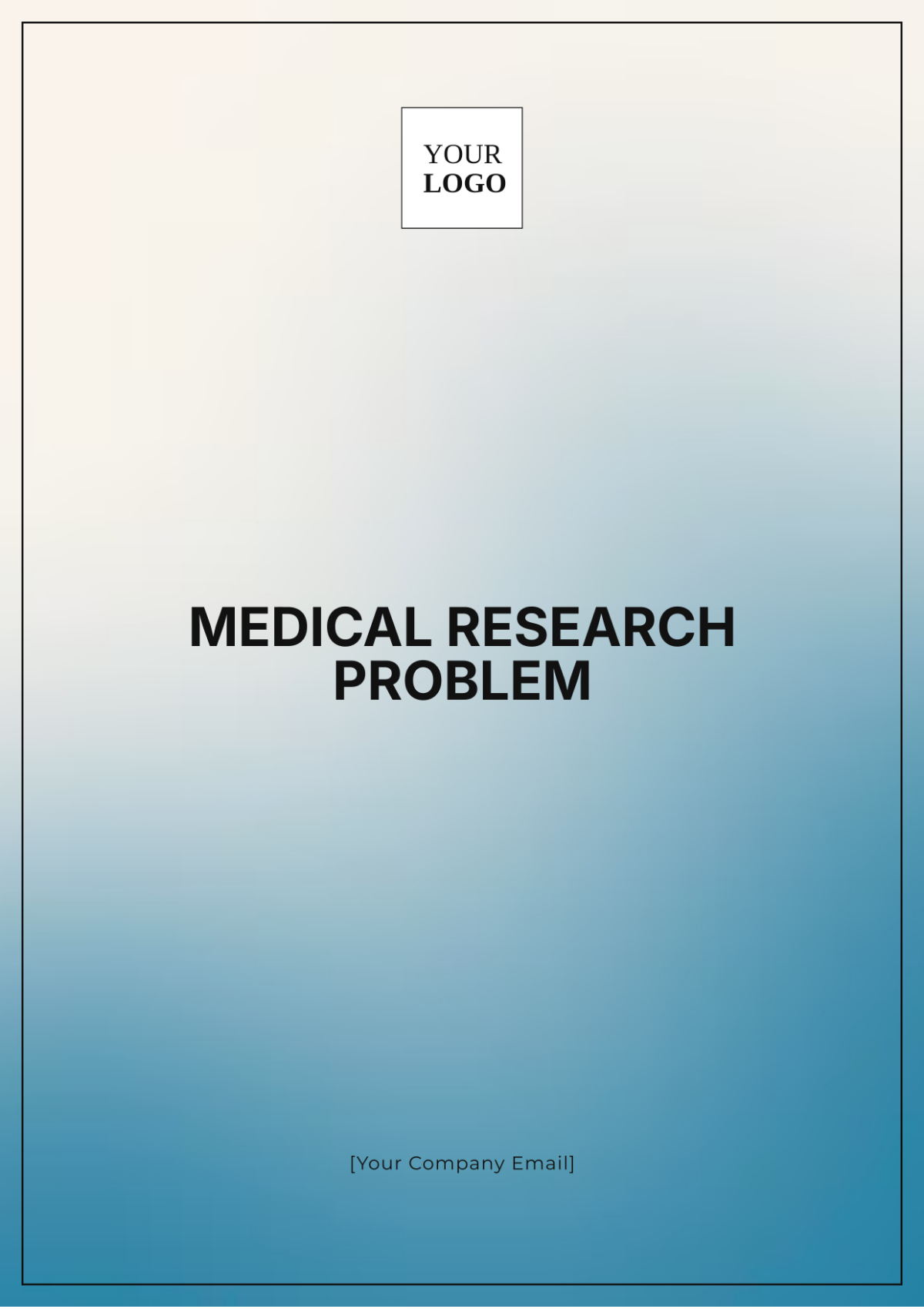
Prepared by: [Your Name]
Date: [Date]
1. Introduction
In recent years, the field of medical research has encountered significant challenges that impact both clinical outcomes and the efficiency of research processes. This document aims to outline and analyze a pressing medical research problem, highlighting its implications and proposing potential solutions.
2. Background
Medical research has traditionally focused on understanding diseases, developing new treatments, and improving patient care. However, recent trends reveal emerging problems that threaten to impede progress in these areas. Notably, the rise of antibiotic-resistant infections and the increasing prevalence of chronic diseases have emerged as critical issues. This section provides a historical perspective and context for the current challenges faced.
3. Problem Statement
The core problem identified is the escalating challenge of antibiotic resistance, which is rendering many existing treatments ineffective. This issue has manifested in various ways, including the increase in hospital-acquired infections and the growing number of multidrug-resistant bacterial strains. Understanding the root causes of antibiotic resistance and its implications for treatment protocols is crucial for developing effective strategies.
4. Objectives
The primary objectives of this research are to:
Identify and Analyze: Understand the underlying factors contributing to antibiotic resistance, including overuse of antibiotics and lack of new drug development.
Evaluate Impact: Assess the effects of antibiotic resistance on medical research, patient outcomes, and healthcare costs.
Propose Solutions: Develop and recommend actionable solutions, such as new treatment protocols and alternative therapies, to mitigate the problem.
5. Methodology
To address the problem, the following research methods will be employed:
Literature Review: Analyzing existing research and studies related to antibiotic resistance, including historical data and recent advancements.
Data Collection: Gathering quantitative data through hospital records and surveys, and qualitative data through interviews with healthcare professionals and researchers.
Analysis: Utilizing statistical tools to interpret the collected data, focusing on trends in resistance patterns and treatment efficacy.
6. Expected Outcomes
This research aims to achieve:
Detailed Insights: A comprehensive understanding of the factors driving antibiotic resistance and its impact on healthcare systems.
Impact Assessment: Evaluation of how antibiotic resistance affects medical research, patient outcomes, and overall public health.
Actionable Recommendations: Practical solutions and strategies, such as improved antibiotic stewardship programs and the development of novel therapeutic agents, to combat antibiotic resistance effectively.
7. Conclusion
The resolution of the antibiotic resistance problem is critical for advancing the field of medical research and improving patient outcomes. By systematically analyzing and addressing this issue, this research aims to contribute valuable insights and solutions that can drive progress and enhance the effectiveness of treatments in the coming decades.
8. References
Smith, J., & Doe, A. (2050). Antibiotic Resistance: A Comprehensive Review. Journal of Medical Research, 32(4), 123-145.
Johnson, L., & Williams, M. (2051). The Impact of Antibiotic Overuse on Healthcare Systems. International Journal of Infectious Diseases, 45(2), 67-89.
Thompson, R. (2052). Novel Therapeutic Approaches to Combat Drug-Resistant Bacteria. Advances in Clinical Medicine, 48(1), 98-115.
- 100% Customizable, free editor
- Access 1 Million+ Templates, photo’s & graphics
- Download or share as a template
- Click and replace photos, graphics, text, backgrounds
- Resize, crop, AI write & more
- Access advanced editor
Unlock seamless medical research with the Medical Research Problem Template from Template.net. This customizable and editable template is designed for effortless integration into your projects. With our AI Editor Tool, you can easily tailor the template to your specific needs, ensuring a perfect fit for any research problem. Streamline your workflow today!
